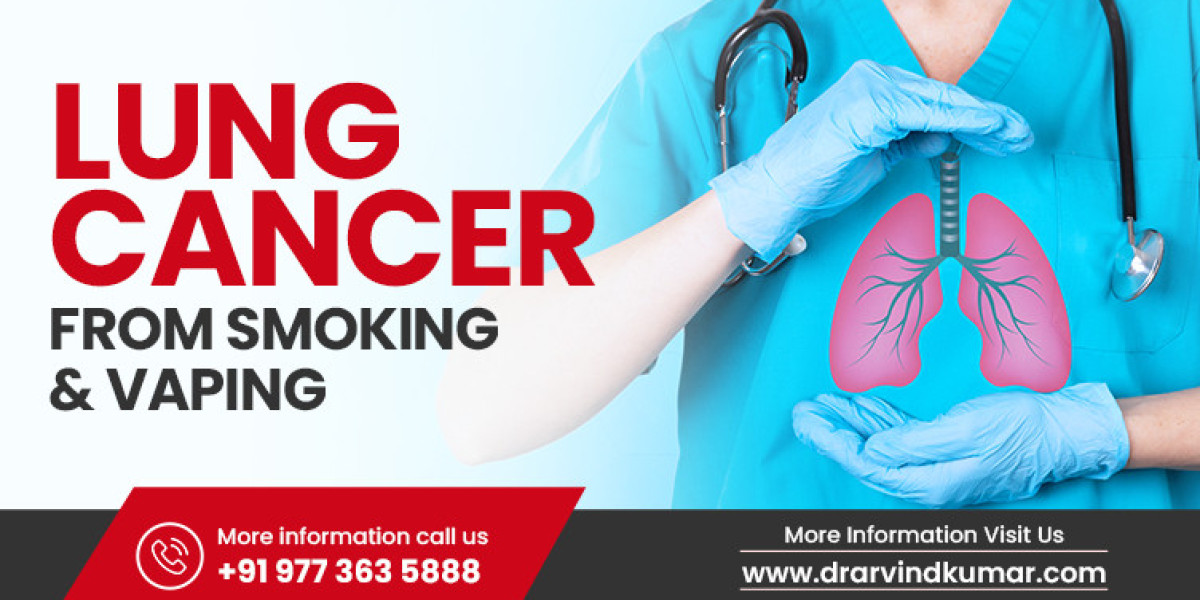Lung cancer is one of the leading causes of cancer-related deaths worldwide, with smoking and vaping as major contributors to its alarming prevalence. Dr. Arvind Kumar, a renowned thoracic surgeon and lung health expert, sheds light on the link between smoking, vaping, and lung cancer, emphasizing the importance of awareness, prevention, and timely intervention.
The Connection Between Smoking and Lung Cancer
Smoking is a well-documented cause of lung cancer. Tobacco smoke contains over 7,000 chemicals, with at least 70 identified as carcinogens. These harmful substances damage the lung tissue and cause mutations in the DNA, leading to the development of cancerous cells. Long-term smoking significantly increases the risk of lung cancer, with heavy smokers being 15–30 times more likely to develop the disease compared to non-smokers.
Dr. Arvind Kumar highlights that smoking not only causes lung cancer but is also a major risk factor for other respiratory conditions, such as chronic obstructive pulmonary disease (COPD) and emphysema. Even passive smoking (exposure to secondhand smoke) can be equally harmful, increasing the risk of lung cancer in non-smokers by 20–30%.
The Emerging Threat of Vaping
Vaping, initially marketed as a safer alternative to smoking, has gained popularity over the years. However, recent studies and clinical observations challenge this perception. E-cigarettes and vaping devices often contain nicotine, toxic chemicals, and flavoring agents that can harm lung tissue. Prolonged exposure to these substances can result in inflammation, oxidative stress, and DNA damage, all of which are linked to the development of cancer.
Dr. Kumar warns that while vaping is relatively new, its long-term effects are not fully understood. However, emerging evidence suggests that it may be a significant risk factor for lung cancer, particularly among younger populations who are increasingly adopting this habit.
Signs and Symptoms of Lung Cancer
Early detection of lung cancer is crucial for successful treatment outcomes. Common symptoms include:
· Persistent cough or changes in the nature of a chronic cough
· Shortness of breath
· Chest pain or discomfort
· Unexplained weight loss
· Fatigue
· Blood in sputum (hemoptysis)
Dr. Kumar advises individuals with a history of smoking or vaping to remain vigilant about these symptoms and seek medical consultation promptly.
Prevention and Risk Reduction
Preventing lung cancer begins with lifestyle changes. Dr. Arvind Kumar emphasizes the importance of quitting smoking and avoiding vaping entirely. Here are some actionable tips:
1. Quit Smoking: Seek support through counseling, nicotine replacement therapy, or medications to stop smoking.
2. Avoid Vaping: Resist the temptation to switch to e-cigarettes as an alternative.
3. Create a Smoke-Free Environment: Protect yourself and your family from secondhand smoke by maintaining a smoke-free home and workplace.
4. Regular Screenings: High-risk individuals, such as long-term smokers, should consider regular low-dose CT scans for early detection of lung cancer.
Treatment Options
If diagnosed with lung cancer, the treatment approach depends on the type, stage, and overall health of the patient. Dr. Arvind Kumar highlights the following advanced treatment modalities:
· Surgery: In cases where cancer is localized, surgical removal of the tumor may be performed.
· Radiation Therapy: High-energy rays are used to target and destroy cancer cells.
· Chemotherapy: Medications are administered to kill cancer cells or inhibit their growth.
· Targeted Therapy: Drugs designed to target specific genetic mutations in cancer cells.
· Immunotherapy: Enhances the body's immune system to fight cancer more effectively.
Dr. Kumar stresses that a multidisciplinary approach, involving oncologists, thoracic surgeons, and pulmonologists, is essential for providing comprehensive care to lung cancer patients.
Dr. Arvind Kumar’s Message
As a pioneer in thoracic surgery and a vocal advocate for lung health, Dr. Arvind Kumar is committed to raising awareness about the dangers of smoking and vaping. He urges individuals to prioritize their respiratory health by making informed choices and adopting a smoke-free lifestyle.
In conclusion, lung cancer from smoking and vaping is a preventable disease. Quitting these harmful habits and seeking regular medical check-ups are vital steps in reducing the risk. With expert guidance from specialists like Dr. Arvind Kumar, individuals can take control of their lung health and live healthier, longer lives.








